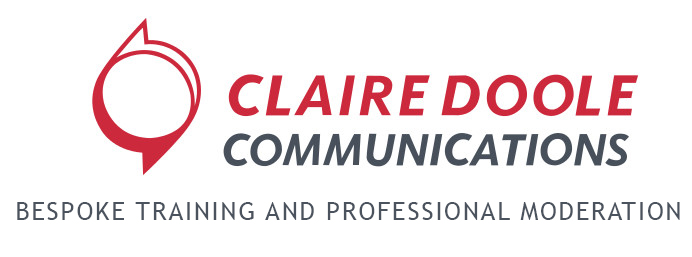I have just come back from Mauritius where I was interviewing some amazing women at the Women’s Forum for the Economy and Society.
I also had the opportunity to observe many top class panels on the themes of sustainable development and climate change. This got me thinking about what makes a perfect panel.
As a former BBC correspondent and presenter, I am often asked to moderate panels and know how stressful they can be for everyone concerned.
So on the 11-hour flight back to Geneva, I jotted down some notes on how to take the stress out of moderation.
They are based on my experience as a moderator, but also as a BBC producer and presenter. For many years I set up panel discussions for myself or other journalists to present. I had to come up with a newsworthy topic and then find, two, maximum three, panelists. I was looking for subject experts, who had different opinions and who could express them clearly, concisely and compellingly.
Below are my 10 tips for organisers on creating a perfect panel:
#1 Select on merit
No one should have a seat on a panel just because they are a friend of the organiser or a sponsor of the conference to sit on a panel. Everyone should be there based on the relevance and power of their ideas.
#2 Test them out
You need to draw up a short-list of candidates and start speaking to them. Do they have something to say that the audience has not heard before? Are they willing to be challenged or express views on related subjects? Are they articulate?
#3 Restrict the panel size
A friend once had to moderate a panel of 10 people. Needless to say it was a disaster. Three or four panelists are ideal as this gives enough time for them to present their ideas, engage with each other and the audience.
#4 Add gender diversity
A mix of men and women is ideal as it is so much more interesting for the audience to hear and see different views on a panel. As you see from the photo at the top of this blog, the Women’s Forum gets top marks for panel size and diversity.
#5 Avoid death by PowerPoint
PowerPoint is a crutch. Most people use it wrongly – the documentation as presentation syndrome. If the format of the panel is for each person to do a short presentation then a couple of highly visual slides work. But once you are into the discussion, PowerPoint breaks up the flow.
#6 Say no to Skype
At the Women’s Forum I did do an interview over Skype (audio only due to bandwidth issues), but this was because the participant was not able to attend due to ill health and one of the most naturally powerful communicators I have ever encountered.
But Skype does not work for panels. I had the misfortune once to moderate a discussion where the first panelist came over Skype. The sound and picture quality was appalling. On top of this her English was too heavily accented for anyone to understand what she was saying.
#7 Fluency
In the previous instance, I also had a panelist who said he understood English but in fact he didn’t so he could not interact with the woman on Skype. Check the language the panelists want to speak in and arrange professional translation if needed.
#8 Vary the length of the panels
At the Women’s Forum the panels varied from 35 minutes to 1 hour 25 minutes. The length depended on the subject matter and number of speakers. Varying the length also helps the audience better focus, as everyone tends to overestimate attention spans.
#9 Select a competent moderator
Good moderation can make all the difference to the success of your conference. If you have a budget, pay a professional moderator as they can ensure your event is engaging and memorable for the audience.
moderation services
#10 Involve the moderator
Brief the moderator on the purpose of the panel. Ask them for their ideas on creating a perfect panel.
Have a look at this video from the Women’s Forum to catch some superb moderators in action.
Women’s Forum for Economy and Society from Claire Doole Communications on Vimeo.
If you are going to moderate yourself or brief a professional moderator, do read my blog on the taking the stress out of moderation.

